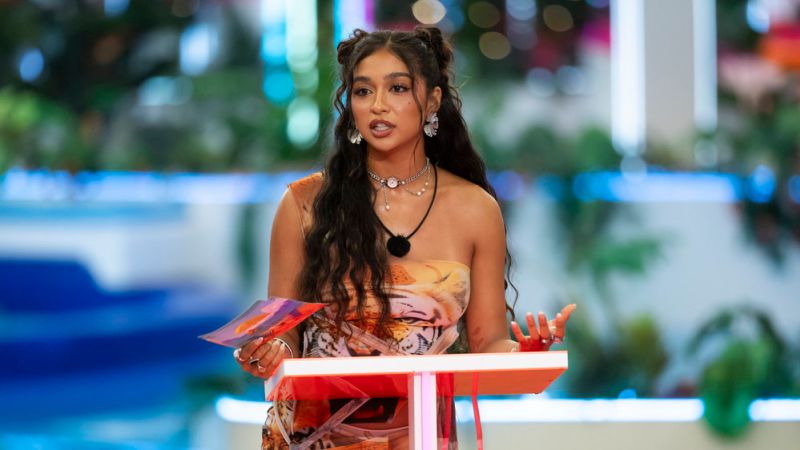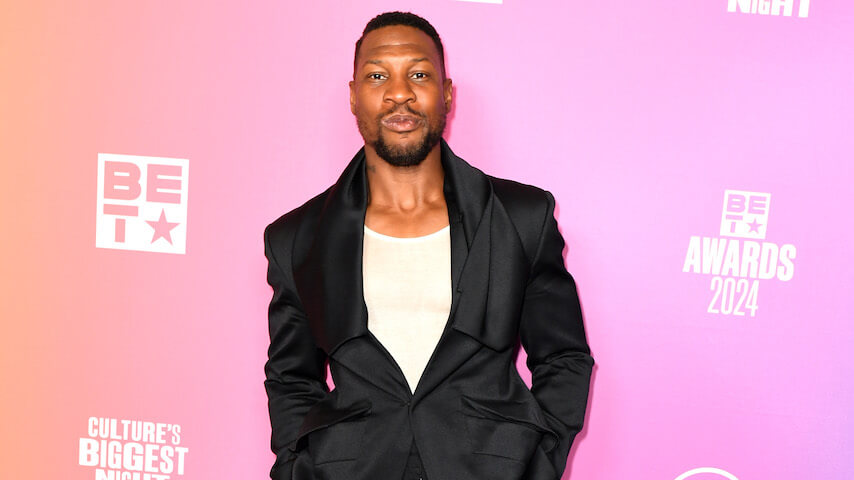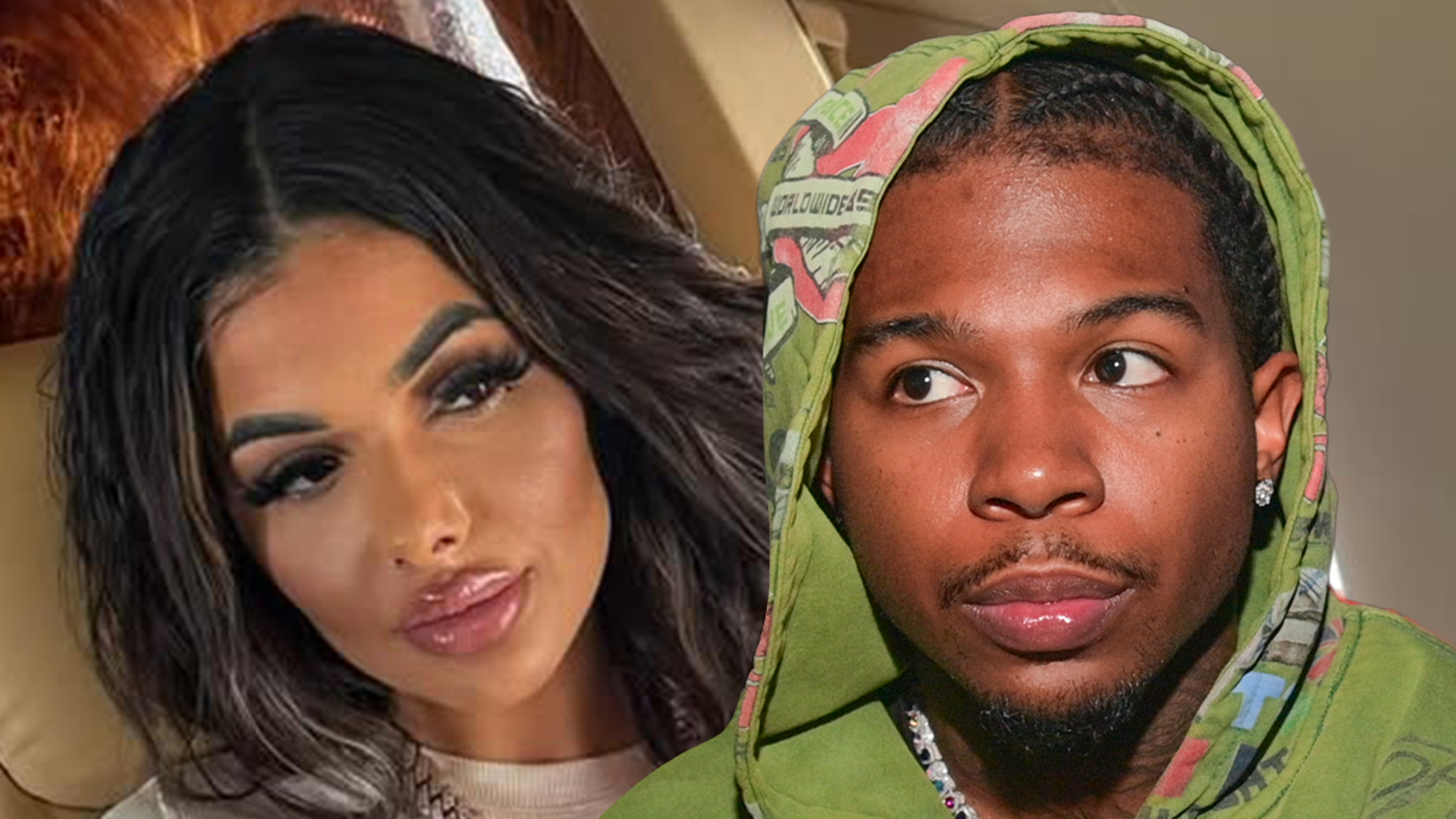Controversial Contestant Leaves Love Island USA

Introduction
The reality show “Love Island USA” has been making headlines for its dramatic and romantic moments. However, the latest news surrounding one of its contestants, Cierra Ortega, has caused quite a stir. After resurfaced social media posts, the 22-year-old beauty has decided to leave the show. Let’s take a closer look at what happened and how it has affected the show.
Background
Cierra Ortega, a former Miss Teen USA contestant, joined the cast of “Love Island USA” as a bombshell in the fifth episode. Her entrance into the villa caused quite a stir as she caught the attention of several male contestants. However, her stay was short-lived as she decided to exit the show after only a few days.
Current Scenario
The reason behind Cierra’s sudden exit from the show has been linked to some controversial social media posts that resurfaced online. In these posts, the former beauty pageant contestant was seen using offensive language and making derogatory comments about different races and communities. As a result, she faced intense backlash from fans and viewers, leading to her decision to leave the show.
This is not the first time a contestant’s past has come back to haunt them on the show. In the past, several contestants have been called out for their problematic behavior or actions, causing them to leave the show. The producers of “Love Island USA” have also been under fire for not properly vetting the contestants before casting them on the show.
This incident has brought to light the importance of responsible social media usage, especially for public figures. In today’s digital age, a person’s past can easily resurface and have serious consequences on their present and future. It is important for individuals to be mindful of their online presence and the impact it can have on their personal and professional lives.
Conclusion
The departure of Cierra Ortega from “Love Island USA” has once again brought attention to the issue of accountability and responsibility on social media. It serves as a reminder for individuals to think before they post and for the producers of reality shows to carefully vet their contestants. As the show continues, it will be interesting to see if any further incidents arise and how they will be handled. Until then, viewers can continue to enjoy the drama and romance on “Love Island USA.”
About the People Mentioned
Cierra Ortega
Cierra Ortega is a 25-year-old American content creator, social media influencer, and reality TV star. Born and raised in Arizona, she is of Mexican and Puerto Rican descent. She graduated from the University of Arizona with a Bachelor of Science in Care, Health & Society, alongside minors in Business Administration and Fashion and Retail Consumer Sciences[1][2]. Currently residing in Los Angeles, Ortega has built a career in influencer marketing and social media strategy, collaborating with prominent brands such as SKIMS, Good American, and Urban Decay[2][3]. Ortega gained significant attention for her participation as a bombshell contestant on *Love Island USA* Season 7. Her appearance on the show contributed to her growing influence, with her Instagram following exceeding 730,000 followers[3]. However, her time on *Love Island USA* was cut short due to a controversy involving a past racial slur, which led to her removal from the show[8]. Despite the controversy, Cierra Ortega remains a notable figure in the realm of social media and influencer marketing. Her career highlights include working with top-tier brands and maintaining a strong online presence. She is known for her body-positive and unapologetic approach to her content creation, which has resonated with many fans[2][3]. Ortega's net worth is estimated to be between $600,000 and $1 million, primarily derived from her brand collaborations and social media influence[3]. Ortega's interests extend beyond her professional life, as she enjoys traveling and sharing her experiences on social media. Her travels have taken her to various destinations, including Egypt, Paris, and Thailand[2]. Despite recent challenges, Cierra Ortega continues to be a recognizable figure in contemporary pop culture, particularly within the influencer and reality TV spheres.
About the Organizations Mentioned
Miss Teen USA
Miss Teen USA is a national beauty pageant established in 1983 by the Miss Universe Organization to crown young women aged 14 to 19 from across the United States. It serves as a platform to celebrate the power, ambition, and leadership of teenage girls, providing them opportunities such as academic scholarships, modeling contracts, brand ambassadorships, and national media exposure[1][4]. The pageant was created 31 years after the Miss USA and Miss Universe pageants, and it originally included three competitive rounds: swimwear, evening gown, and interview. In 2016, the swimwear segment was replaced with athletic wear to reflect a cultural shift toward empowering active, purposeful lifestyles among young women[1]. Historically, Miss Teen USA has been part of the Miss Universe Organization’s portfolio, which also produces Miss USA and Miss Universe. The organization emphasizes the development of confident, goal-oriented women who pursue personal, career, and humanitarian goals while serving as role models[3]. The pageant has evolved over the decades, showcasing diverse winners and adapting its criteria to reflect modern values. For example, in 2019, Kaliegh Garris's win marked a historic moment as she was part of the first time the reigning Miss America, Miss USA, and Miss Teen USA were all Black women, illustrating progress in representation within pageantry[2]. In 2020, the Miss USA and Miss Teen USA franchises were transferred from the Miss Universe Organization to Crystle Stewart, Miss USA 2008 winner. However, Stewart was suspended in 2022 amid rigging allegations and later parted ways with the organization in 2023 after a cleared investigation[1]. Currently, Laylah Rose serves as president and CEO of both pageants[1]. In 2025, BDE MISS USA, LLC, led by Thom Brodeur, acquired exclusive license rights to Miss USA and Miss Teen USA, signaling a new chapter for the brand with the 2025 pageant
Love Island USA
**Love Island USA** is a reality dating television series based on the British format *Love Island*, which has become a notable player in the entertainment and digital engagement space since its U.S. debut in 2019. Initially commissioned by CBS, the show aired its first three seasons there before moving to the streaming service Peacock starting with the fourth season, where it has since achieved substantial growth and viewership[1]. The core concept involves a group of attractive singles, called "Islanders," living together in a luxury villa in Fiji, aiming to form romantic partnerships. The show's format includes unique dynamics such as "bombshell" entrants who challenge existing couples and weekly "recoupling" ceremonies where Islanders choose new partners or risk elimination. Viewer participation is a defining feature, with audience votes influencing recouplings, eliminations, and ultimately which couple wins the grand prize. This interactive element is amplified through a dedicated *Love Island USA* app, which offers voting, polls, quizzes, and games to engage fans beyond the broadcast, fostering a highly immersive experience[2][6]. The show has distinguished itself as a pop culture phenomenon and a leader in streaming reality TV. Its sixth season broke records as the #1 reality series in the U.S. across all streaming platforms, amassing 434 million minutes viewed, according to Nielsen data[1]. This success prompted Peacock to greenlight a spin-off, *Love Island: Beyond the Villa*, which premiered in July 2025, extending the franchise’s footprint[1][5]. Currently, *Love Island USA* continues to captivate audiences with its seventh season, premiering in June 2025, hosted by Ariana Madix and narrated by Iain Stirling. The show emphasizes authentic connections, drama, and fan interaction, with the app reaching over 5.5 million unique users and nearly 30% of viewership happening on mobile devices, signaling a shift toward mobile-first entertainment consumption[3][
















